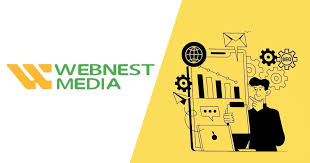Marketing your online business effectively is key to its success in today’s competitive digital landscape. Whether you’re just starting out or you’re a seasoned entrepreneur, understanding the nuances of online marketing is crucial for growth. One of the most effective ways to drive traffic and increase visibility is through enterprise PPC management. By working with an enterprise PPC agency or utilizing the services of an enterprise PPC company, businesses can ensure that their ads are highly targeted and their marketing efforts yield measurable results. However, while enterprise PPC services can significantly enhance online visibility, there are other essential strategies to consider for comprehensive online marketing success.
The Power of Enterprise PPC
Enterprise PPC management refers to the handling of paid advertising campaigns for larger businesses, often across multiple platforms like Google, Facebook, and other paid media channels. PPC (pay-per-click) is a highly effective model where businesses pay for each click their ad receives, ensuring they only pay when their ad generates actual interest.
An enterprise PPC agency specializes in creating and managing PPC campaigns, making sure they are optimized for the best results. These agencies use sophisticated tools and deep knowledge of bidding strategies, audience targeting, and data analytics to drive the highest return on investment (ROI). For businesses looking to expand their reach and generate immediate traffic, working with an enterprise PPC company can be a game changer.
However, before diving into PPC, it’s important to understand how it fits into the broader marketing picture and how it can complement other strategies.
The Role of SEO in Online Marketing
Search Engine Optimization (SEO) plays a critical role in driving organic traffic to your business’s website. Unlike PPC, where you pay for visibility, SEO involves optimizing your website to rank higher in organic search engine results. This is done by improving website content, keyword usage, meta tags, and backlinks.
For long-term online business success, a solid SEO strategy should go hand in hand with your PPC campaigns. While enterprise PPC can give you immediate results, SEO helps build lasting visibility, allowing you to gain ongoing traffic without recurring costs. For instance, optimizing your content for keywords related to your products or services ensures that people searching for those terms can find your site organically.
Combining the short-term benefits of paid ads with the long-term strategy of SEO gives your business a well-rounded approach to online marketing.
Social Media Marketing: Expanding Your Reach
Social media platforms, such as Facebook, Instagram, LinkedIn, and Twitter, provide an excellent opportunity for businesses to reach new customers. Social media marketing allows you to engage with your audience directly, build relationships, and promote your products in a non-intrusive way. It also provides powerful ad platforms to promote your business to highly targeted audiences.
Enterprise PPC services often include managing paid social media ads, which allow you to place ads in front of the right users based on their behavior, interests, and demographics. With tools like Facebook Ads Manager or LinkedIn’s Campaign Manager, businesses can run highly effective campaigns that generate both brand awareness and direct sales.
Beyond paid ads, social media offers businesses an opportunity to build their brand identity and engage with customers through posts, live videos, and user-generated content. It’s a great way to foster trust and loyalty while increasing your brand’s visibility.
Email Marketing for Customer Retention
While acquiring new customers is essential, retaining existing customers is equally important. This is where email marketing comes into play. Email marketing allows you to nurture leads, keep your customers informed about new products, and offer promotions or discounts to encourage repeat purchases.
A solid email marketing strategy helps build relationships with your audience and provides value through newsletters, product updates, and exclusive offers. By segmenting your email list, you can send personalized messages that resonate with specific customer needs, enhancing engagement and driving conversions.
Integrating email marketing with your PPC campaigns can boost your efforts. For example, you could retarget visitors who clicked on your PPC ads but didn’t convert by sending them a personalized follow-up email offering a discount or more product information.
Content Marketing: Creating Value
Content marketing is one of the most powerful ways to attract, engage, and convert potential customers. By creating high-quality, informative, and relevant content—such as blogs, videos, infographics, and guides—you can establish your brand as an authority in your industry. This content can be shared on your website, through email newsletters, or on social media platforms, driving traffic and engagement.
The key to successful content marketing is providing value to your audience. For example, if you’re selling a product, create a blog post or video that educates your customers about how to use it effectively or addresses a common pain point they may have. This builds trust and can increase the likelihood of a purchase.
When combined with PPC advertising, content marketing can improve your results by driving organic traffic to your website. High-quality content can boost your SEO rankings, enhancing your organic search visibility while complementing the results of your paid ads.
Leveraging Analytics for Continuous Improvement
One of the most significant advantages of online marketing is the ability to measure and track every aspect of your campaign. Whether it’s PPC, SEO, or social media marketing, analytics allow you to understand what’s working, what isn’t, and how to optimize your efforts for better results.
For instance, PPC campaigns often come with comprehensive reporting that shows impressions, clicks, conversion rates, and ROI. Using these insights, you can tweak your campaigns—whether it’s refining your ad copy, adjusting your bid strategy, or targeting a different audience segment. This continuous optimization is key to improving your campaigns over time.
Similarly, website analytics (like Google Analytics) can track user behavior on your site, giving you insights into how visitors interact with your content, products, and checkout process. This data can be used to improve user experience, enhance website design, and drive more conversions.
Paid Advertising vs. Organic Traffic: Finding the Right Balance
Both paid and organic marketing strategies have their place in online business marketing. While enterprise PPC services can drive immediate traffic and sales, organic efforts like SEO and content marketing provide long-term, sustainable growth. Ideally, your online business should leverage both approaches for a balanced marketing strategy.
For example, you could use PPC to target high-intent keywords and drive traffic to your site, while simultaneously working on SEO to build organic visibility over time. As your SEO efforts gain traction, you can reduce your reliance on paid ads, allowing you to focus your budget on higher-priority campaigns or new products.
Conclusion
Successfully marketing an online business requires a well-thought-out strategy that incorporates various digital marketing tactics. From enterprise PPC management to social media marketing, email marketing, content creation, and SEO, there are numerous ways to grow your business and increase your online presence.
By working with an enterprise PPC agency or utilizing enterprise PPC services, businesses can take advantage of targeted paid ads that drive immediate traffic and sales. However, it’s important to complement paid efforts with organic strategies to build long-term, sustainable growth. By continuously optimizing your campaigns using analytics and leveraging a variety of marketing channels, your online business can thrive in the ever-evolving digital marketplace.



